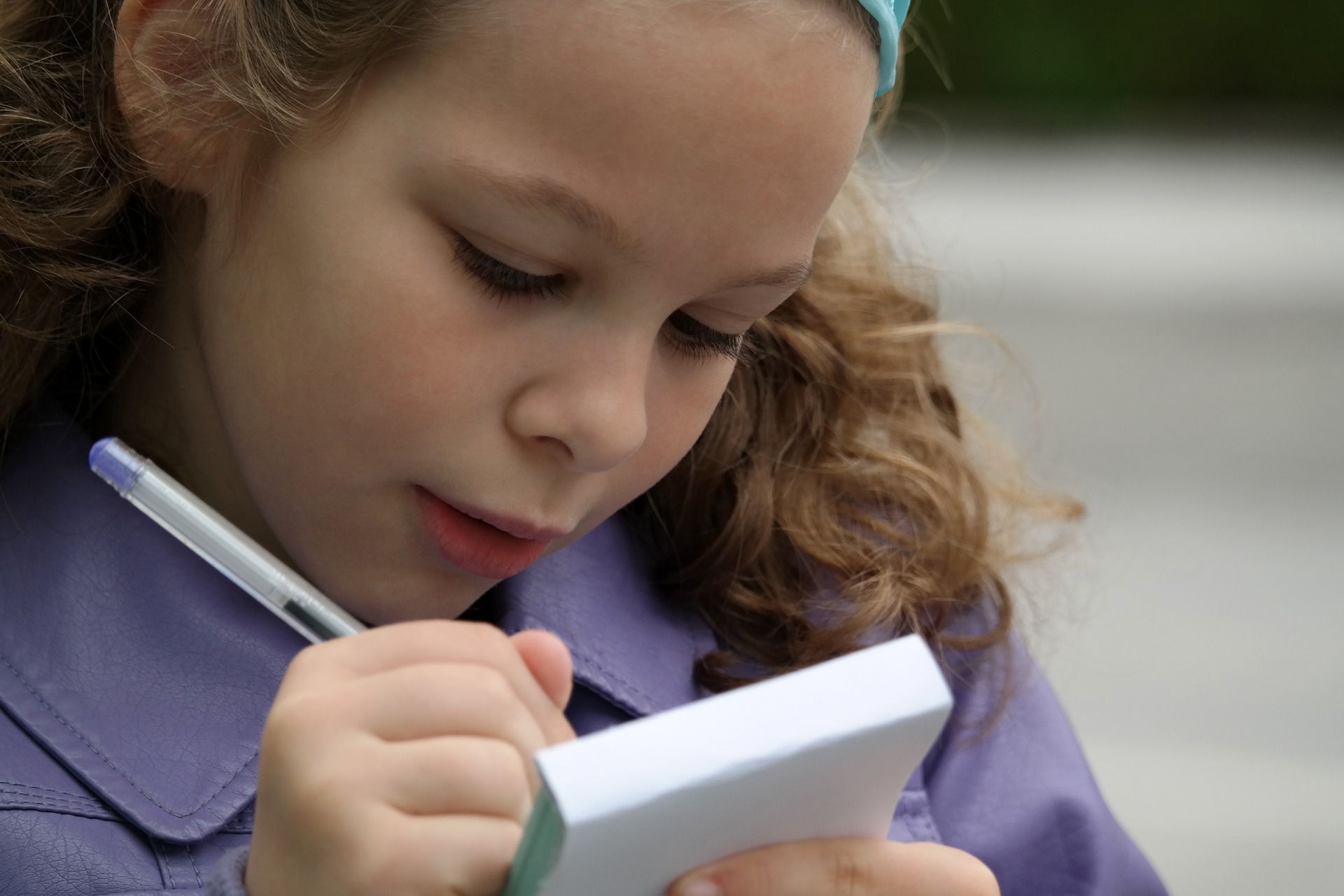You might have noticed that your young child with high learning potential is crazy about reading, but how do they feel about writing? Some adore it, but putting pen to paper doesn’t always match up with reading ability as it involves a whole different set of challenges. Perhaps your child’s fine motor skills are slower compared to their fast-paced minds. Or maybe the writing topic just doesn’t grab their enthusiasm.
So what can you do to help your child love words more? Here are some suggestions to make writing a lot more fun and for the paper-reluctant, there’s even voice recording!
Describe a Sound
Use your mobile to record some outdoor sounds and ask your child to identify them. Can they then put their sounds into a descriptive sentence, using as many interesting words as they know? You could help them with adjective choices too.
For example: birds (a magpie, swallow flying overhead, an owl at night time), a wind chime, water (splashing in a paddling pool or a garden sprinkler), transport: a bus, a bicycle bell.
Silly Sentences
Start your child off with an alliterative sentence e.g. noble nightingale nearly narrows night. How many can your child come up with?
If they don’t want to alliterate, challenge them to bring in more complex words. These could be everyday commonly used words, such as ‘definitely’ instead of ‘yes’, ‘happily’ instead of ‘pleased about it’, ‘recognise’ instead of ‘saw it before’, and ‘chat’ instead of ‘speak’. Kids love big words!
Record an Audiobook
What is your child’s favourite story, or fact book? This lovely activity is also one for you to listen to and enjoy when they are grown up (one grandparent heard of recently has kept her son’s recording about him wanting to walk on the moon!).
For gifted dyslexic children, it’s also a great way for them to be more involved with their story.
Record the book together, and both of you can add modifications as you wish. Use sound effects if liked to boost sound and word relationships.
Or Audio It!
Is there an author who your child would love to discover but hasn’t yet had the opportunity? Find out the author’s name and then acquire an audiobook. At the end of the first chapter, pause the play and ask your child if they can reflect on what’s happened so far and if they can predict what will happen in the next chapter.
Secret Writing
Psst, this is for your child to share only with their choice of person! This could even prompt a chat about how people used to write in the past and what they may use in the future.
You’ll Need:
Paper, cotton buds, a hairdryer, lemon juice
Squeeze the lemon juice into a bowl to make ink and use the cotton buds as pens. What secret writing appeals to your child? Could they make up a poem or a rhyme? Ask them to hold up the paper to a heat source such as a hairdryer or traditional lightbulb, so someone can read their writing.
Never Forgotten Birthday Book
Technology can’t always compensate for the value of the printed word. This activity will also develop your child’s vocabulary and helps HLP children focus on the writing process. Plus, a birthday memory is usually popular!
Let your child choose an attractive notebook (or use a scrapbook). Talk about the day that they were born and subsequently their favourite birthdays. Give your child felt tips or pencils to illustrate it. You could even include photographs of your child’s choice, birthday cards and invitations. They will enjoy reminiscing over their special book for years to come.
Writing About Day Trips and Special Moments
Gifted children thrive on topics that allow them to learn and explore, whereas themes that are only given to them to prove they have learned the subject can be dull. One way to prompt writing is to choose a special occasion. If they went to Legoland, your child might draw pictures of their coolest rides. Drawing about a special event enhances your child’s recollection and it will be brilliant to see their excitement as they remember!
Follow this up by asking them if they can tell you a few sentences about the drawing. If that’s hard, ask your child what they can imagine! How does the sea smell? What sounds can they hear? Write the words down (it’s much quicker for you than them) and when you start to use punctuation such as speech marks, you then have an opportunity to explain what those are.
Linking drawing to early literacy brings out the joys of words and language.
Finally
If your child has a comic or magazine they enjoy, why not ask if they wish to send in a reader’s letter? Some publications have prizes as an incentive.
Value your child’s creativity and see where words can take them.







